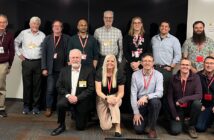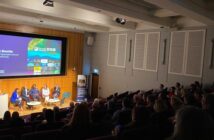In a new paper, released today (14 September 2023) in Nature Astronomy, Open University (OU) researchers and their collaborators highlight ethical issues surrounding research in ‘extreme’ environments used as analogue sites to understand other planets, and how this relates to the future of space exploration.
OU academics Dr Alessandra Marino, Professor Karen Olsson-Francis and Professor Shonil Bhagwat, and a team of international experts in the field of Astrobiology used ethics as the lens through which they approached analogue fieldwork across the globe. The team based the study on experience of fieldwork predominantly in the Global South.
Fieldwork should be done in a way that is collaborative, justice orientated and with respect for the people and the environments that researchers interact with. All too often researchers from well-funded universities in Western countries conduct studies in lower-income settings or with local communities who are historically marginalized, with little or no involvement from those communities or local researchers.
Establishing relationships with local researchers and the communities living in sites of scientific interest means they are treated as equal partners. Researchers are compelled to acknowledge and respect local beliefs and people’s rights on their lands.
Alessandra Marino, Research Fellow in International Development within AstrobiologyOU, led the team’s research. Dr Marino commented:
“This paper is more than a reflection on what current fieldwork practices are, it is a call to the astrobiology community to do scientific research in a way that is more just and more caring. Ultimately, the values and practices of space research on this planet will be the ones that we take with us on future exploration missions.”
The researchers hope that by taking the spirit of collaboration that underpins the sharing of space samples, the approach to research in extreme environments will be more respectful, collaborative and inclusive. This is relevant for future space missions which also require the inclusive and collaborative practices within and beyond academia.
Professor Shonil Bhagwat Professor of Environment and Development at the OU, highlighted the collaborative approach taken for the study:
“A unique aspect of this paper is a compelling vision for ethical research, developed by a diverse team of researchers from countries in Africa, Europe and the Americas, directly derived from good practice in their own research.”
Reflecting on the research as a whole, Professor Karen Olsson-Francis added:
“This paper goes a long way in putting AstrobiologyOU firmly on the international map as a group of researchers that are committed to carrying out ethical analogue fieldwork.”
The paper was conceived and completed collaboratively by the authors as a result of their collective experience and the authors were all an equal part in the production and review of the paper.
International research team:
Fulvio Franchi and Lesedi Lebogang (Botswana International University of Science and Technology), Fernando J. Gomez (Centro de Investigaciones en Ciencias de la Tierra), Armando Azua-Bustos (Centro de Astrobiología and Universidad Autónoma de Chile), Barbara Cavalazzi (Università di Bologna and University of Johannesburg), Ermias Balcha. (Hawassa University), Kennda Lynch (Lunar and Planetary Institute)



